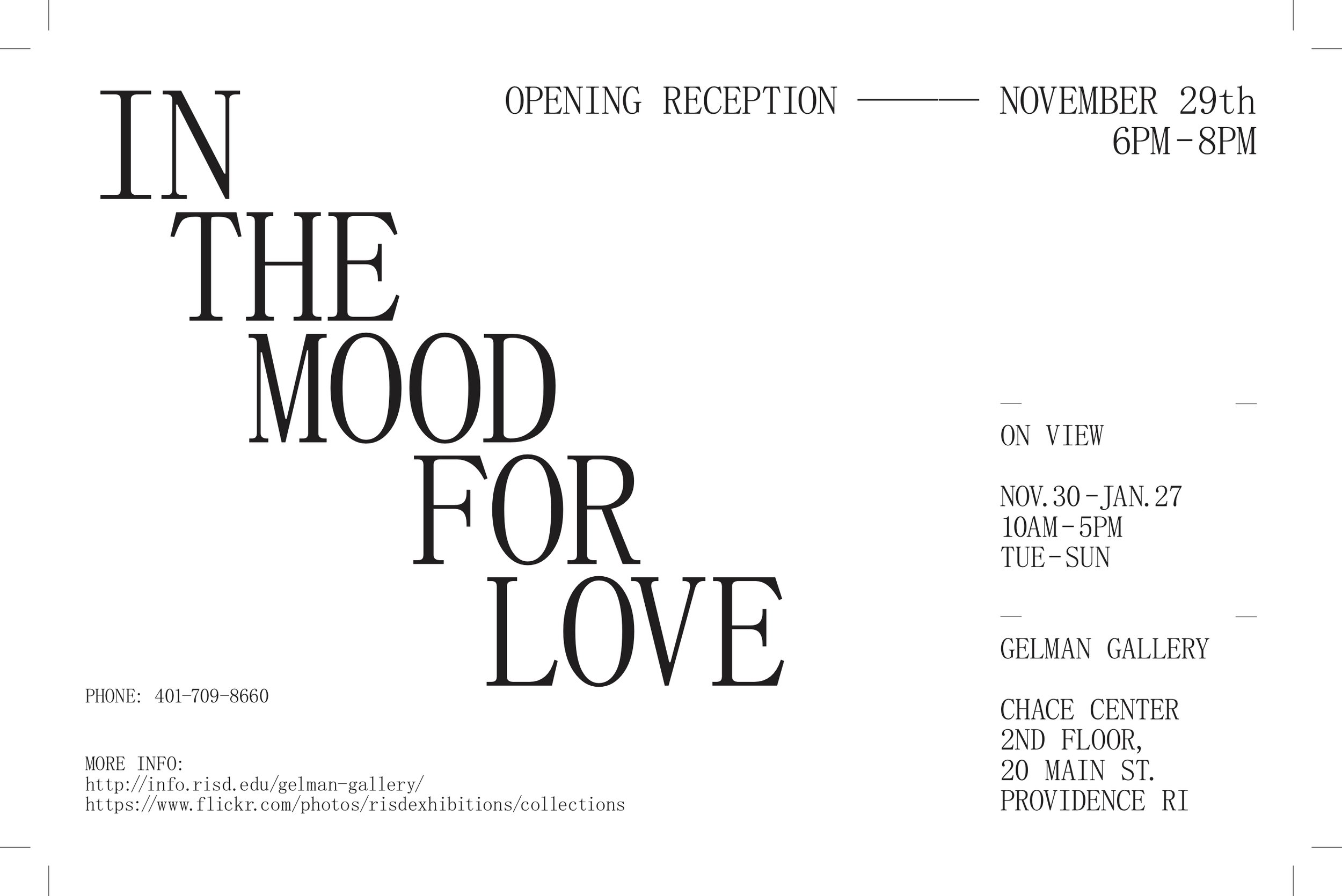
IN THE MOOD FOR LOVE 2018-19
Co-Curated alongside
Christine Cho & Z.T Nguyen
Featured works by:
Anthony Anderson Maria Gerdyman Jon Ng
Raghvi Bhatia Changrui He Kimberly Nguyen
Zoé Blue Chenlu Hou Z.T. Nguyen
Maux Brauer Xiner Jiang Justine Nguyen-Nguyen
Ji (Sasi) Chandrivochana Aayushi Khowala Sara Park
Daniel Chen Jessica Kim Lucy Qiu
Jono Cheong Laura Kim Sam Koh
Christine Cho Mary Kuan Sruti Suryanarayanan
Emi Chun Vuthy Lay Lou Tandon
Tiger Dingsun Kay Liang Irene Wei
Erica Enriquez Alex McAdoo
“Pan-Asia” (noun) Pan-ey-zhuh: a careless term used to refer to the largest population in the world that geographically spans about half the planet.
“In the Mood for Love” highlights a group of Asian/American and Pacific Islander/American (AAPIA) identifying artists working to challenge the scope of ‘pan-Asia’ and to promote solidarity at all intersections of the diaspora. We recognize that the term “Asian” was created to homogenize and other us, and we wish to reclaim these terms on our own accord through the scope of the work. We acknowledge that we cannot accurately represent all AAPIA experiences, nor can we speak on behalf of the entirety of ‘pan-Asia’ and the Pacific. Catalyzed by the fact that we are collectively labeled as “Asian,” we choose to find power in a term that was created to oppress us and continues to distort our realities.
This exhibition is a call to the AAPIA community at RISD to shift our focus from individual cultural experiences (in reaction to the flattening of our identities) to one of love and support for one another. The title references Wong Kar-wai’s In the Mood for Love (2000) and the two protagonists in the film who cannot act on their love because it is more obtainable as a fantasy than as a reality. Equating their love to our desire for solidarity, the artists of the exhibition recognize that our inability to fall in love is largely due to white hegemonic structures such as colonialism, homogenization, and orientalism. We challenge ourselves not only to indulge in this mood for love, but also to reject performative activism and advocate for social justice and equality.
Acting within the AAPIA diaspora, the work illuminates our intertwined histories of trauma and war to confront and dismantle hierarchies such as colorism, imperialism, and queerphobia. Within our histories we see time as nonlinear, as we have previously, and continue to try to exist in spaces where we are not welcomed. As we consider themes of re:memory of intergenerational traumas, mistranslations, traversing multiple realities, burdens of family expectations, and standards of cis-heteronormativity, we present these individual experiences to redefine conceptions of AAPIA identities. Here, we choose to love one another.
At the end of Wong’s film, the two protagonists ultimately do not continue their relationship, and instead succumb to inaction, fearing the consequences of falling in love. This foreshadows the consequences of the AAPIA community not acting on their love, thus passively accepting the monolithic Asian identity prescribed to us. We invite you to be in the mood for love: to heal, build relationships in solidarity, and work together for social justice and equality--not only for ourselves, but for all people of color.


















